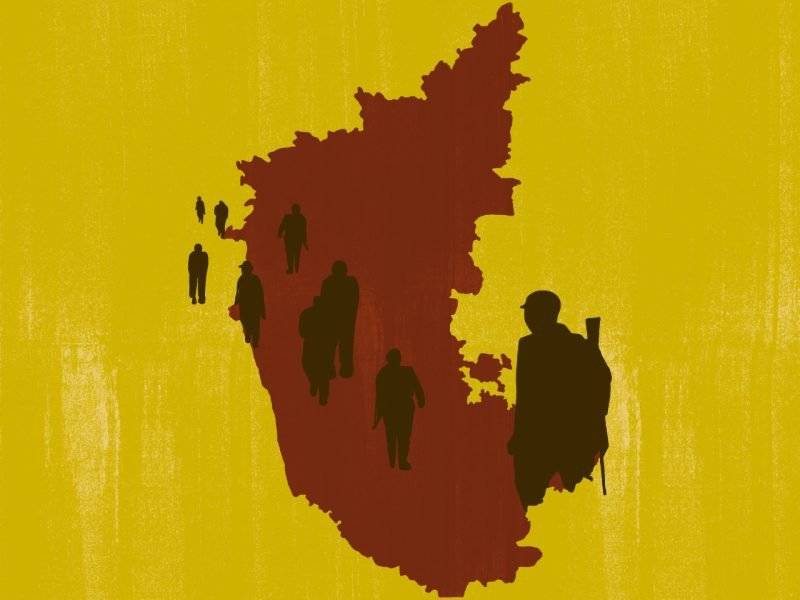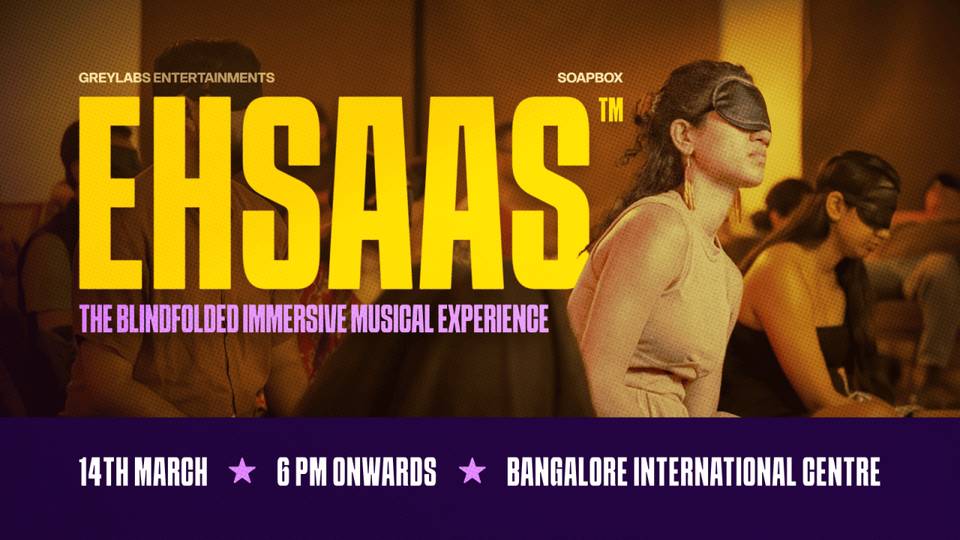The Twist in the Odyssey of Naxalism in Karnataka - Can the Karnataka Model of the “Surrender” of Naxalites Be Emulated in Other States?

Details
Jun 26 2025 to Jun 26 2025 6:30 p.m.
EVENT HAS ENDED
Where
Bangalore International Centre
7 4th Main Rd, Stage 2, Domlur 560071
Event Description
Around 15 years ago, the then UPA government had launched an all-out offensive (commonly known as ‘Operation Greenhunt’) targeting the armed cadres of the Communist Party of India (Maoist) (also known as Naxalites) across the ‘Red Corridor’ which consisted of Naxal-affected districts spanning Central and Eastern India and spilling into Southern India as well. According to reports at the time, Naxal cadres were active (to varying degrees) in at least 165 districts across this corridor which was also coterminous with the most backward, primarily tribal and the most resource rich parts of the country. The BJP government, which came to power in 2014, continued this policy of an all-out offensive against the Naxalites extending this to target the urban activists/ sympathisers of the CPI (Maoist) as well.
There has been a marked decline in Naxalite activity since then with the number of affected districts falling to 70 in 2021 and newer reports suggesting that the Naxalite presence is restricted to fewer than 50 districts now. In a strong policy statement, Home Minister Amit stated that “Naxalism will be completely eliminated by 2026.” Human rights activists have questioned the state’s all-out approach of using overwhelming force to quash Naxalism as this method is not addressing the fundamental grievances of the residents of these tribal parts which is of their displacement and exploitation of the rich natural resources by large corporations. Several Naxalites have surrendered over the past two decades but questions have also been raised on the efficacy and sincerity of the surrender policy.
Karnataka was also impacted by the wave of Naxalism and, commencing in the 1980s, cadres were recruited for this cause in the State as well. In the 1990s, it seemed like the movement was spreading its base in Karnataka aggressively but a series of encounters including that of Saketh Rajan, the charismatic Naxal leader, in 2005, ensured that the movement did not become widespread in Karnataka. There was also intense churn among a section of the cadres of the CPI (Maoist) in Karnataka after this as well with one group exiting the party as it had ideological differences with the central leadership of the party. Over the two decades since that time, the Naxalite movement has ebbed in Karnataka with several Naxalites also surrendering. Early in 2025, with the “surrender” of the last group of Naxalites in Karnataka, Chief Minister Siddaramaiah declared the state to be Naxal-free. The Karnataka model presents a template of how Naxalism, in its violent form, can be ended. By all accounts, the Karnataka model is unique for the manner in which former Naxalites joined the mainstream of activism. The role of the mature civil society in Karnataka that played a crucial role in facilitating this process is also important.
The discussion proposes to dwell on the trajectory of Naxalism in Karnataka from its inception in the 1980s till early 2025, and whether the state is willing to seriously engage with the grievances of marginalised people who became Naxals. Is the state empathetic to the concerns of the Naxalites who came overground? The discussion proposes to dwell on all these aspects while broadly focussing on the success of the Karnataka model of mainstreaming Left-Wing Extremists.
Speakers
K P Sripal
Advocate
K P Sripal is an advocate based in Shivamogga and handles both civil and criminal cases. Over the past 26 years in his work as a lawyer, Sripal has been involved in a variety of pro-people initiatives. He is known as a people’s lawyer and in this service, also provides free legal aid to those who cannot afford legal services. He has also been involved in a range of human rights activism from his student days and has been part of agitations for students’ rights, communal harmony movements and environmental issues. In the past, he was also a member of the Karnataka Komu Souharda Vedike (Karnataka Communal Harmony Forum), an alliance of activists who worked for communal harmony in the State. He has closely followed the plight of surrendered Naxalites and represented many of them in juridical proceedings over the past decade. Since 2023, he has been a member of Karnataka’s ‘Naxal Surrender and Rehabilitation Committee’ which is a government appointed committee to facilitate the surrender of Left-Wing Extremists in Karnataka.
Noor Sridhar
President, Karnataka Janashakti
Noor Sridhar, a former member of the People’s War Group and the Communist Party of India (Maoist), was one of the first members in Karnataka to abandon the armed struggle of the Naxalites and join the democratic activism of Karnataka’s civil society in 2014. As president of Karnataka Janashakti which describes itself as a “people’s organisation working for the workers, farmers, women and oppressed castes and classes,” Sridhar is an active member of the vibrant civil society movement in Karnataka. Currently, he is involved in the activities of Eddelu Karnataka which is civil society initiative to fight against anti-democratic and anti-Constitutional forces. He is also a part of Samyukta Horaata Karnataka which is a common platform for people’s movements by farmers, workers, Dalits, Adivasis, students, women
Sridhar is originally from Chitradurga and says that his concern for pro-people’s movements was inspired by his family’s heritage as his grandfather was a Sufi. As an active member of the PWG and, later the CPI (Maoist), Sridhar was involved in Naxalite activity in Karnataka in the 1990s and early 2000s. In 2005, he was considered next in line for the leadership of the Karnataka unit of the CPI (Maoist) after the death of Saketh Rajan. Even though Sridhar exited the Naxalite movement many years ago, he continues to reiterate that the grievances that compelled marginalised people to pick up arms, are still relevant.
Tara Rao
Senior Activist and Strategist, Eddelu Karnataka
Tara Rao is a member of the Central Working Group with a people’s political campaign – Eddelu Karnataka – consisting of over a 100 diverse set of grassroots organisations that is building an active citizens’ movement ground up. She first knew she wanted to get active on social justice working as an architect in Nepal in the early-90’s on a community-led school design project. For just under four decades, working across disciplines, she has also been employing her design skills, shaping action in the areas of rural development, environment and human rights, working with non-governmental organisations (incl. Amnesty, Greenpeace, WWF) and various bilateral and multi-lateral organisations in Asia, Africa and beyond.
Tara has spent many years facilitating collaboration with multi-disciplinary teams in national and global initiatives for social and environmental justice. Her work has taken her to live in Vietnam, Bhutan, Nepal, Denmark, and the UK. Just before she joined Eddelu Karnataka, Tara was part of setting up, testing and supporting Gigatonne Challenge – a team-based global climate action company. She believes that our massive socio-political and environmental challenges will ultimately require an active citizenry to actually turn things around.
Vikhar Ahmed Sayeed
Journalist
Vikhar Ahmed Sayeed is an award-winning journalist with Frontline newsmagazine and is based in Bengaluru.















